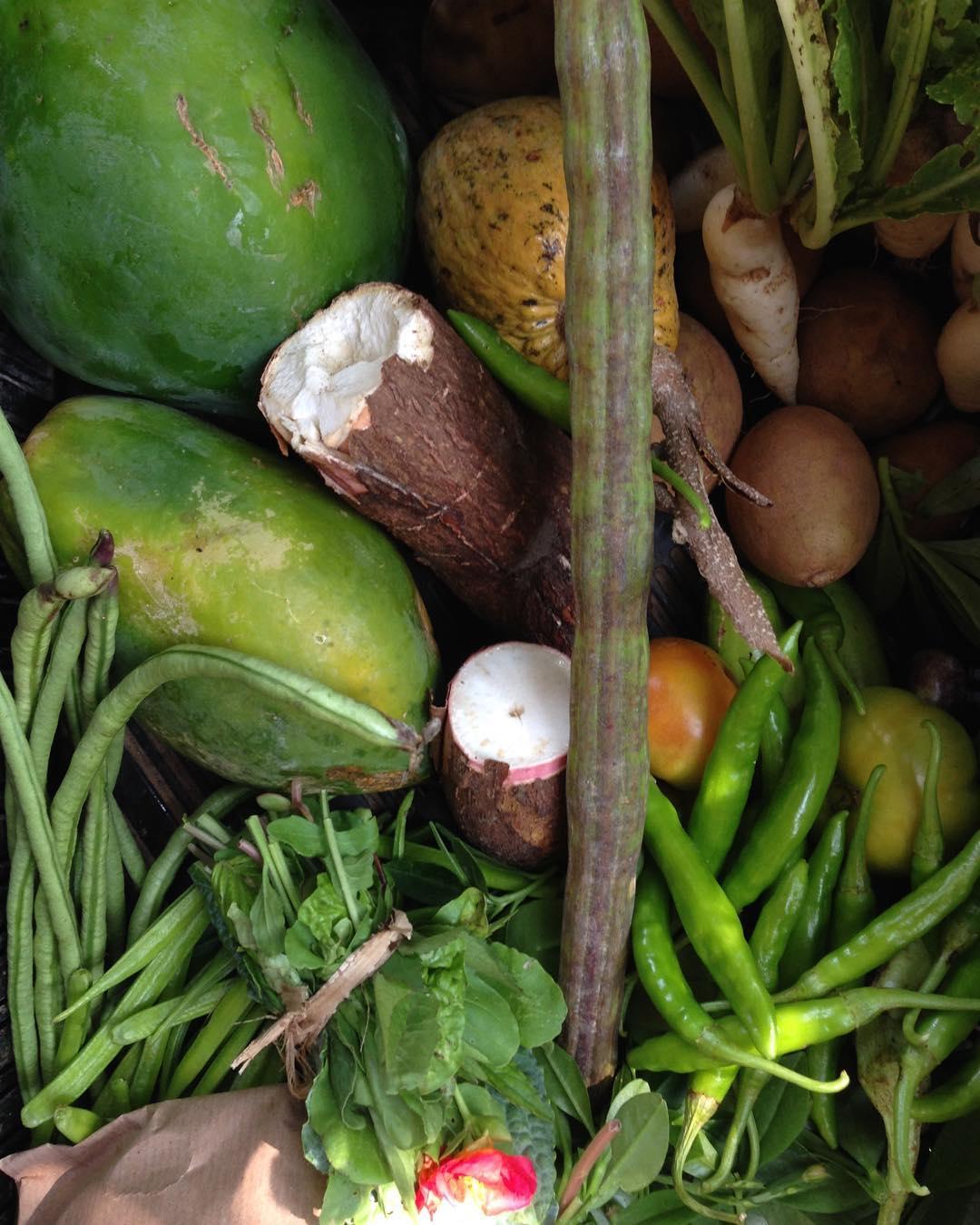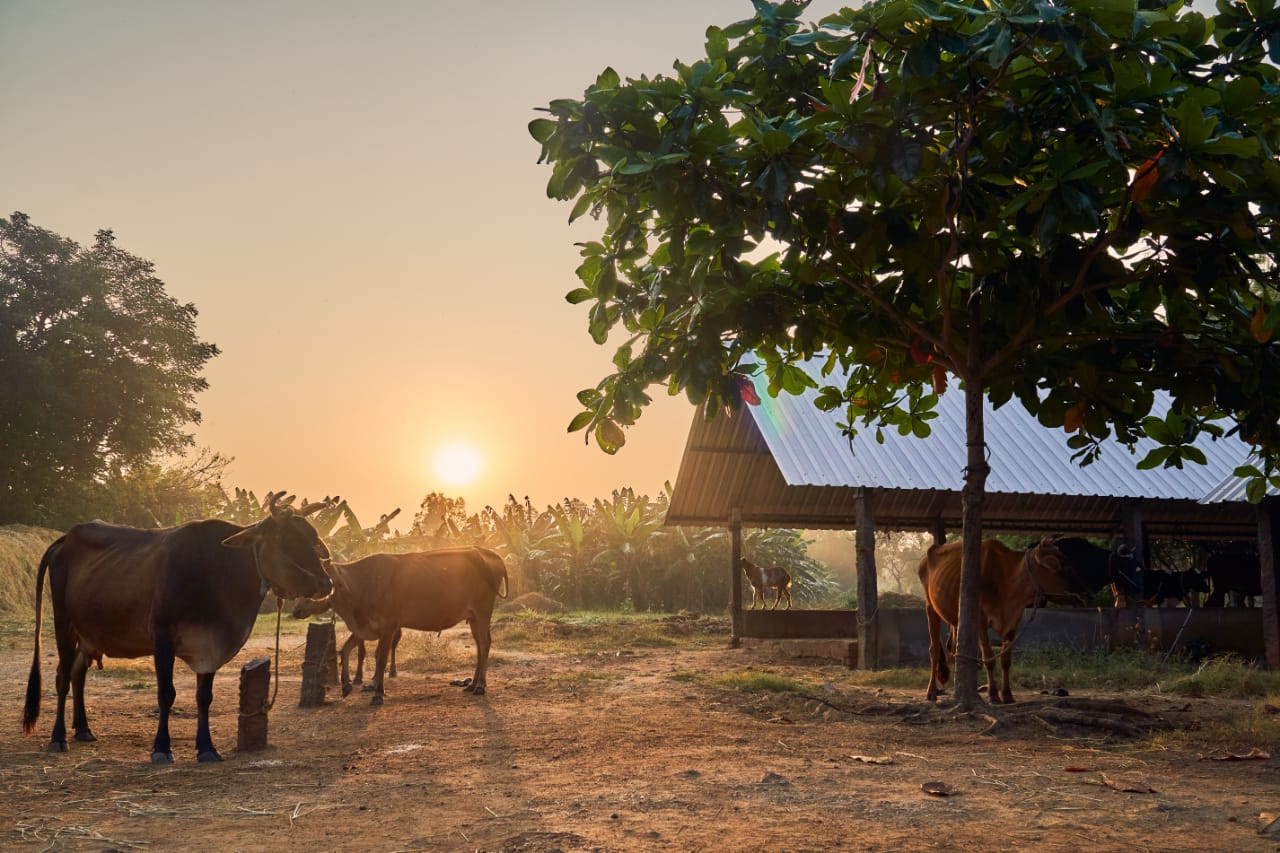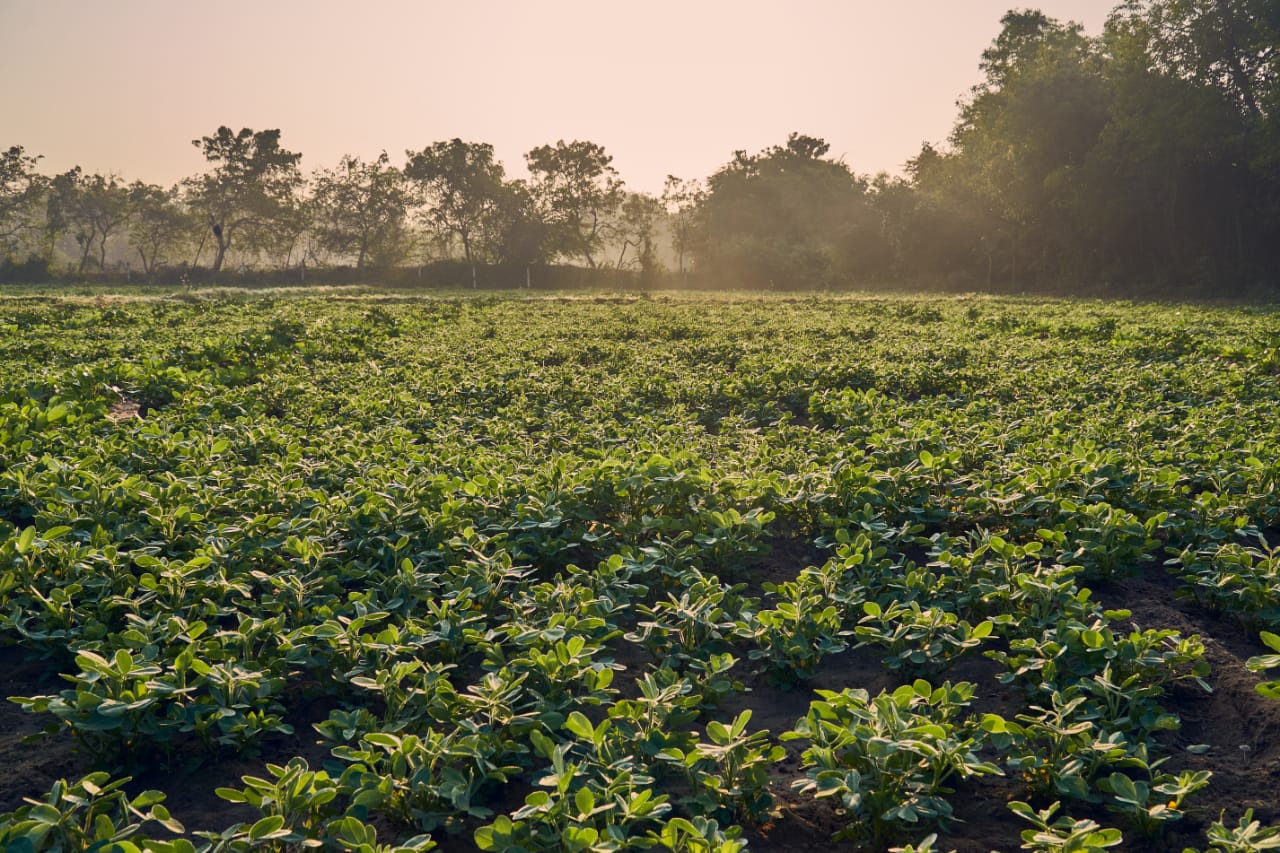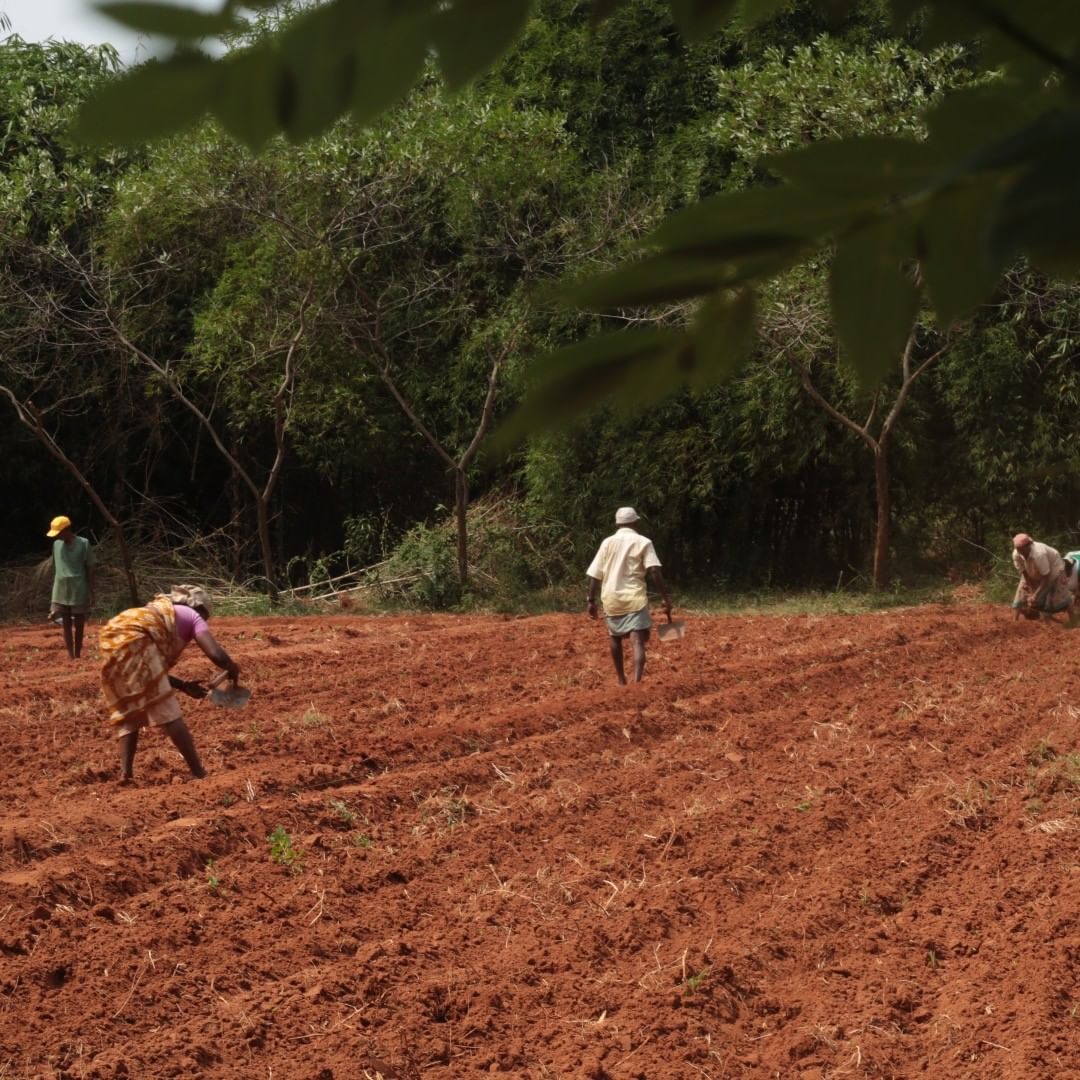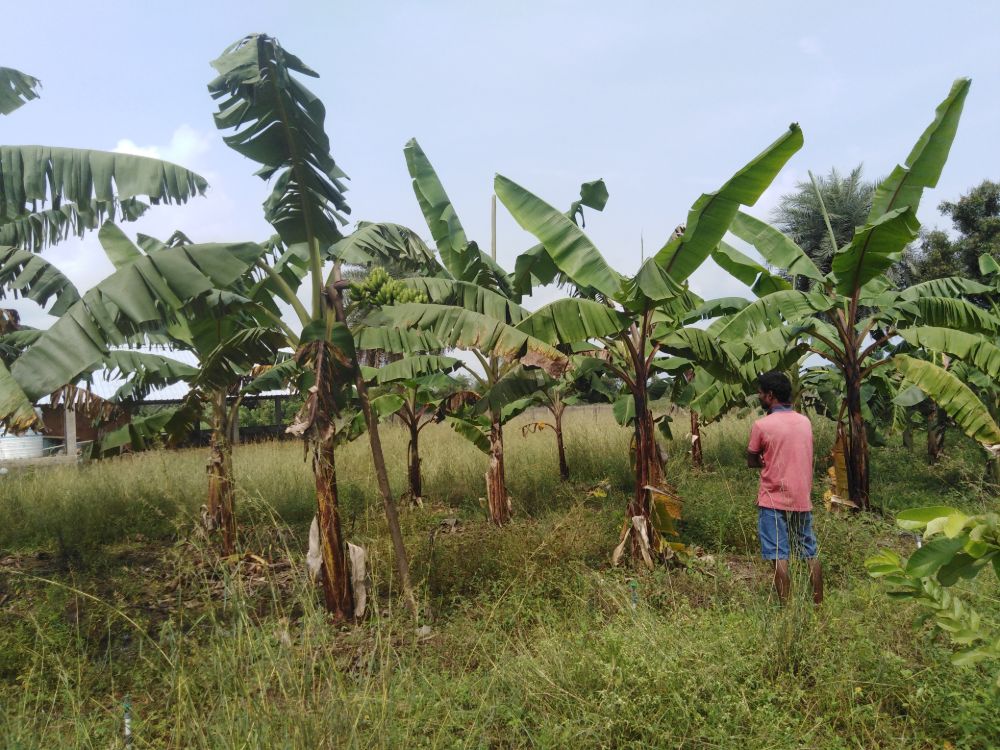A Glimpse Into Auroville Farming
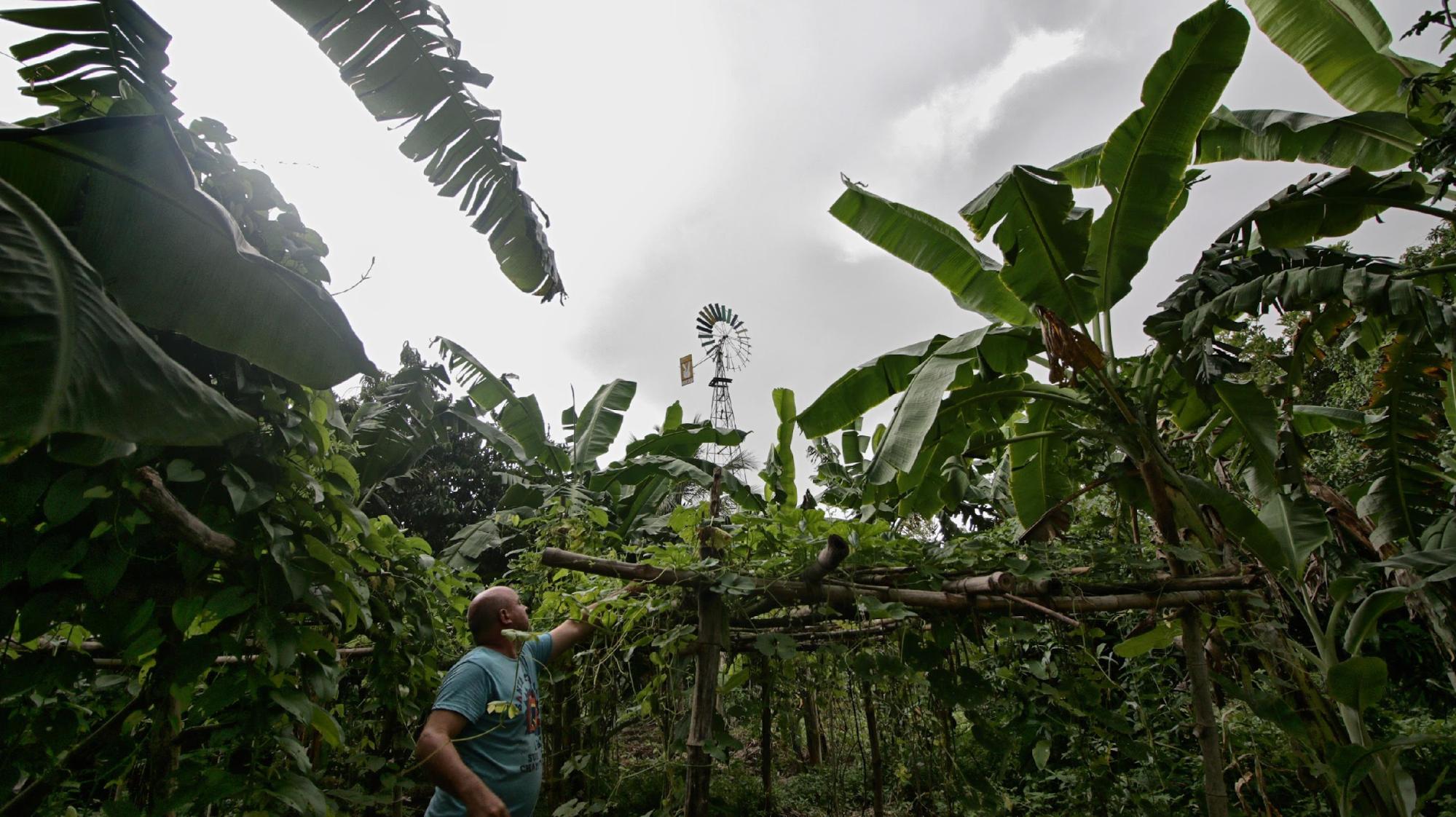
The Mother had always extolled the importance of good eating habits and the necessity of pure, chemical-free food for all. Following these lines, Auroville as a community aspires to establish a sustainable, financially-viable model of organic farming, and serve as an inspiration to other communities.
Unique Food Consumption Pattern
Auroville is a community with people from diverse backgrounds and cultures. Residents from the West, Middle East, Asia and other parts of the world, live together as a community. With this diversity comes a huge disparity in their culinary and dietary practices. This unique and diverse consumption pattern of the residents of Auroville is what makes it a special community to cater to.
The farmers of Auroville viz. the farmers grow different kinds of produce on approximately 320 acres of farmland which includes grains, vegetables, fruits, dairy and poultry. They face the vagaries of nature in addition to the scarcity of labour which affects the production and supply. Given these socio-ecological challenges, there is a huge gap between the demand and supply of locally produced food in Auroville, something that the farming sector aims to fill. This gap, though primarily due to the unique demand of the consumers can also be attributed to the inability to grow certain types of crops/produce in the bioregion. Vegetables like lettuce, tomatoes, cabbages etc are in high demand among the residents of Auroville and farms now are actively trying to grow such vegetables to cater to their needs.
To top this up, local food advocates of Auroville try to introduce the community to local vegetables and fruits as part of its various other initiatives. It does so in an innovative manner by providing recipes one could try using the local vegetable. Newsletters, and introducing new menus in the restaurants are some of the ways the community tries to get the residents interested and open to exploring different food varieties and thus including them in the diet.
Scarcity of workforce in the Farm sector has been primarily due to a stereo-typing of farming as a menial profession among the youth, many opting for a white-collar profession, instead of getting their hands dirty in the soil. Many farms in Auroville run on minimal labour, mostly that of the steward and family along with a few others. A need to respect this noble profession, and to encourage others to develop a passion for farming is being recognized.
To address this issue, many farms open their doors for volunteers to actively participate in the activities of the farm. This initiative helps the non-farming community, both within and outside Auroville to understand what farming is about. Additionally, it also meets the manpower shortage to some extent.
It is imperative for one to know where one’s food comes from, the source, the production process, and its value instead of mere passive consumption. This remains the belief of many Aurovilians in the farming sector and programmes including courses, trainings are being conducted in Auroville.
The volunteering and training programs also provide an opportunity for the local rural youth to upskill themselves in this domain under the mentorship of experts. In addition, some farms like the Buddha Garden put in an effort to collaborate with universities, both in India and abroad, and invite students to spend some time on the farm. This helps them to understand the difficulties associated with farming and to be more aware of what it takes to grow food for a community.
The Food Link serves as a bridge between the farmers and the consumers. Without a central distribution centre like Foodlink farmers would grow vegetables and find a market individually instead of coming together as a community to identify their needs and trying to meet the same. Now the farmers grow many vegetables on their farms and Food Link serves as the primary distributor from where it is distributed to other individual buyers, be it other distribution centres, restaurants or residents. This way, the farmer does not have to focus on marketing and selling his produce but instead can invest his energy and efforts in farming activities alone.
Another issue faced by the farmers, as mentioned earlier, is the unique consumption pattern of food in Auroville. Farmers primarily can grow local vegetables like cluster beans, gourds etc and many a time there is an oversupply of these, whereas the in-demand of non-local produce like lettuce, potatoes, cabbages, cauliflower etc are in short supply. Due to this the consumer base of Auroville buys it from outside the community thus disturbing the objective of becoming a sustainable group.
At other times many farms tend to grow similar types of crops again leading to an oversupply. The Food Link group aims to be the central portal where farmers get advice on the types of crops to grow, remains a focal point of distribution of their produce and provides support to the farmers in all aspects. Along with the farmers, prices for the produce are fixed and it remains so for an entire year thus eliminating the need for the energy-draining and conflict-generating process of bargaining.
The Farm group was formed with this primary objective - to help and support farmers while aspiring to meet the food demands of the Aurovilian community. They write for funds to support the farm and coordinate the farming activities in totality. In accordance with the charter of Auroville, no single person ‘owns’ land in Auroville and hence farmers are allocated a minimum of 4 acres of land and are designated ‘stewards’ to the land which they manage. The stewards are responsible for their farms and strive to make them work in all possible manners along with the support received by the Auroville Farm group and experts.
The overall objective of the Farm Group is to make Auroville more sustainable in food production. Currently, during the best harvest season which is in the cool season, the farmers are able to meet just 20% of the food demand in the township while it goes down to 5% in summers. The rest of the food is normally sourced from the bioregion and the outside market. As mentioned earlier, this is attributed to socio-ecological challenges met by the farmers. The bright side of this is that Auroville as a community is well aware of the dangers posed by chemical-laced food and is very open to organic and chemical-free food production.
This organic mode of farming has immense ecological and health benefits but adds to the effort of the farmers who have to resort to manual intensive labour instead of chemical sprays to keep their farms free of pests. This labour-intensive mode of farming does not help since the profit generated thus is very less compared to other sectors. To counter this, some farms opt for food processing units to make value-added products like pickles, jams, cheese etc which takes care of surplus produce and at the same time provides an additional source of revenue for the farm.
There are around 20 farms in Auroville and each is unique in its vision, objectives and produce. With respect to the output of the farm, some focus on vegetables, while others on fruits, grains, dairy and processed food. All farms function with the primary objective of meeting the food needs of the Aurovilian community in a healthy organic manner and operate by that resolve. Some farms focus more on spreading awareness of conscious food production among the community and educating them on the ground realities of a farming experience. This they do by organizing training programs, workshops and volunteer programs for those interested. Some others focus on a completely organic and nature-friendly mode of farming and thus aspire to be a model for other farms. Each of these farms thus in turn form part of the big picture of the vision of Auroville farms to be a complete organic, sustainable and conscious mode of food production, providing its consumers with good health and nutrition to lead a healthy life.
See Also
